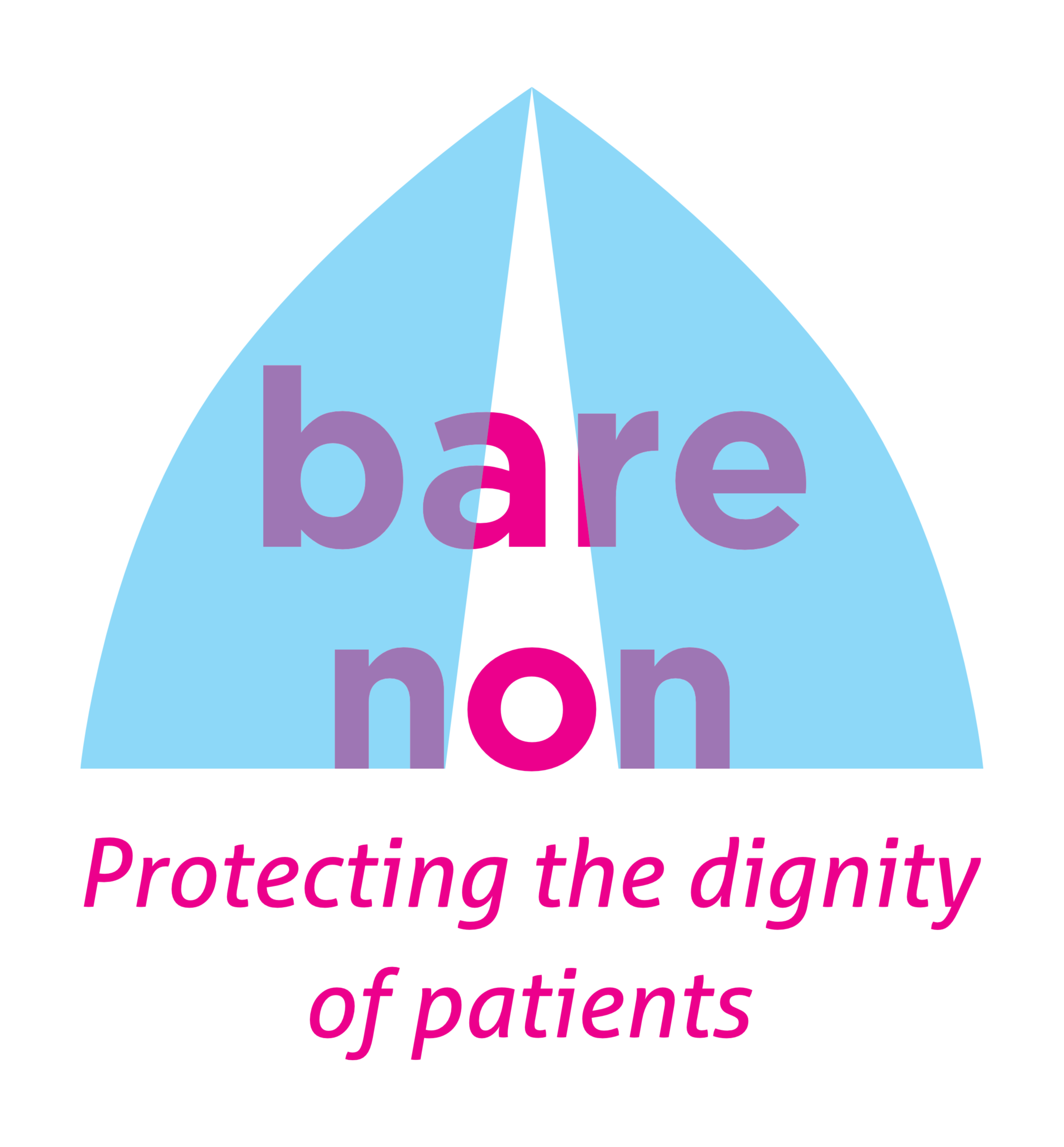Doctor’s invention to retain modesty
May 1, 2018 - Independent Practioner Today
A new and simple apron that keeps women covered while allowing doctors to carry out full upper-body examinations has been designed by orthopaedic spinal surgeon Mr Mushtaque Ishaque.
Spire Little Ashton’s clinical nurse manager Samantha Jarvis with the Bare-Non Modesty Apron
Produced by Birmingham company Bare-Non Ltd, it is being offered to all female patients undergoing a clinical examination at Spire Little Aston Hospital, near Sutton Coldfield, West Midlands.
Placed over the neck ‘like you would put on a lifejacket’, the apron, made of non-woven polyethylene-backed tissue, consists of two loose panels that effectively cover both breasts but allow clinicians access to carry out thorough inspections.
Mr Ishaque said an examination apron such as this was ‘long overdue’ and had been well received by patients and medical staff alike.
He explained: ‘I got the idea when I was on a plane and watched the stewardess put a life-jacket on. It was when she turned around I realised it was perfect, as it covered the front but allowed the back to be seen completely.
‘I then introduced the split in the middle to allow access to the abdomen when the patient is lying on their back. The final step, which allowed us to patent it as an invention, was the extendable crimped neck line, which means one size fits all.’
Clinical nurse manager Samantha Jarvis said: ‘There are so many occasions when a woman is asked to remove all clothing above the waist, but there really isn’t any reason why they should have to sit semi-naked in a room where not just the doctor but several other people might need to be in attendance.
Sister Catherine Chapman (right) shows how the apron allows examination while keeping the patient covered
‘This apron helps them maintain their dignity and takes away potential embarrassment yet still allows for a thorough examination from front and back.
‘Women expect to remove top clothing for breast examinations, but it is necessary for so many other things, such as ECGs to test the heart and even spinal examinations where the consultant needs to see the full, uncovered back in order to check for alignment problems.’
Pre-op Sister Catherine Chapman added: ‘Recent news events – both home and abroad – have highlighted how women’s dignity has, in effect, been taken for granted.
‘It isn’t good enough to leave patients wrapped in a blanket or just covering themselves with their hands. They want to be examined properly without feeling exposed and uncomfortable.
‘It is fair to say that some women don’t worry about such things in a medical situation, but, in my experience, many more are bothered and have really welcomed the new aprons in a very positive way.’
But it isn’t just women patients who are benefiting from the introduction of the apron. Mr Ishaque said: ‘One patient told me that, unless he was on holiday and wearing swimming trunks, he was quite uncomfortable undressing in front of a woman – which can often happen in hospital.
‘The Bare-Non Modesty Apron – as we have called it – allows men the same sort of dignity it offers women patients which is absolutely as it should be.’


